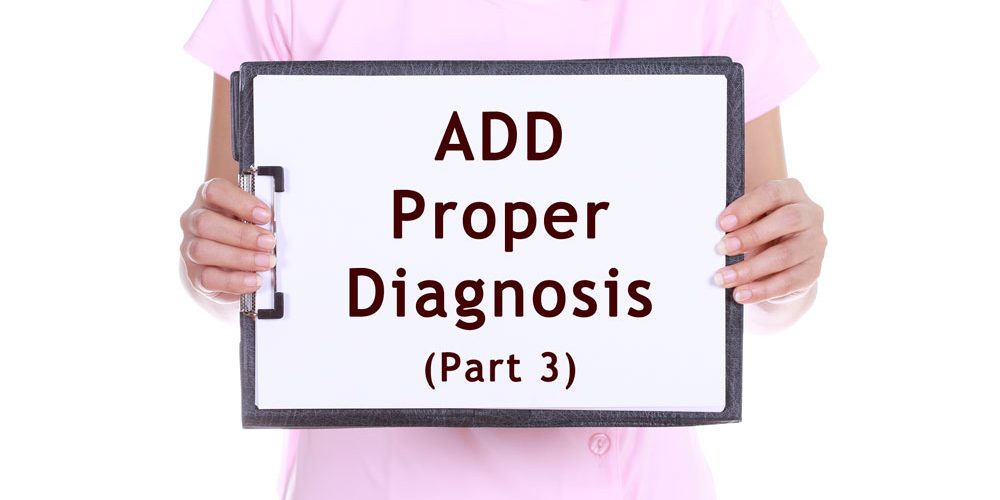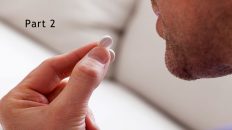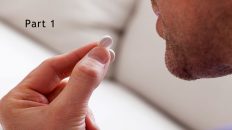By Jerry Morris, PsyD, MsPharm, MBA
MB (Marc Braman, MD, MPH):
So I would be expecting a referral to a specialist, being a psychologist or psychiatrist, and that they would do an in depth process which would typically evaluate family issues and dynamics and kind of the whole picture. And how long would these tests or specialist evaluation properly take?
JM (Jerry Morris, PsyD, MsPharm, MBA):
Well, generally in two half days and then sending for collateral information to collaborate with the pediatrician or family physician, review medical results and labs to rule out things that could be organically masquerading as these problems, and to send to the school teachers to review their records. And so, two half days of evaluation and testing of the patient and their family and then sending for and reviewing the collateral data would give you a really good indicator of what you’ve got. And I might say, another piece of this, of course, is to realize that some of these disorders such as Attention Deficit Disorder and Bipolar disorder really have developmental aspects and especially brain development aspects. So, when a child is raised in a certain kind of environment, it not only affects the personality but the development of the brain and neural systems, and cell assemblies. And so, it’s very, very difficult to change so when we get to talking about treatment we need to realize there’s no simple quick and dirty medicine that’s going to change that brain and there’s no quick and dirty 150 minute session a week with the kid that’s going to change this brain, that we give third grade teachers nine whole months to even change the brain so it’s got neurons so that it knows that three times five equal 15 for the rest of your life. So, when we get to talking about treatment, this is a very complicated job.
MB:
Okay. So, as a parent, if my child is being properly evaluated, I would be looking for what sounds pretty intense in terms of roughly eight hours of evaluation. That’s a lot more than I would be looking for, expecting from a typical specialist visit that might be 30 minutes.
JM:
And here’s the problem that I might add, that the psychiatrists in America now and the prescribing psychologists in several states and all of the military, some psychologists who have an additional three years of postgraduate training can prescribe. And here’s their problem: They get on the same kind of treadmill that general physicians are. So they’re seeing so many patients a day that the tendency is, unconsciously or consciously, to just run these kids through, guess at the diagnosis, and then add a prescription and then move on to the next patient if you’re seeing a lot of patients ’cause you’d like to get off work and have a life and a family and all. So there’s a real danger that many psychologists and psychiatrists that are advanced specialists can fall into that old pattern of limited attention to diagnosis, limited attention to real treatment, and falling into partial diagnosis or educated guesses, and then medication-only techniques instead of a real treatment plan.
MB:
So, as a parent, just give me a snapshot, at what point would I be confident that my child had the correct diagnosis? What would have happened?
JM:
Well first of all, you’d be confident if the doctor was telling you all of these things I’m talking about and saying that, “Look, most of the children I get in here are mislabeled ‘Attention Deficit Disorder’. So there’s a better than chance prospect that, if we do accurate diagnosis, there may be another psychological disorder going on here. Additionally, if I don’t get to know your family and how you think and how the the family atmosphere is and has been during the development of this child’s brain, I really couldn’t do more than give you an educated guess because I don’t understand the experience of this brain and can’t apply my science that tells me what that does to brain development and personality development. And then, thirdly, if I’m not willing to follow up the diagnosis with either giving you extensive retraining of your child’s brain and skills in the family, or refer you to someone who has the time to do that, I’m really not doing you a big favor by diagnosing this problem.” Now if you get that kind of honesty and scientifically-based conceptualization of the diagnostic process, then you know you’ve got yourself a good doctor that knows Attention Deficit and these other disorders and is fully invested in your case.
MB:
Excellent, very useful. You need a correct diagnosis to get effective treatment. Thank you, Dr. Morris.
JM:
You’re welcome, Marc. Glad as always to be with you.
Attention Deficit Hyperactivity Disorder: Effectiveness of Treatment in At-Risk Preschoolers; Long-Term Effectiveness in All Ages: and Variability in Prevalence, Diagnosis, and Treatment (2011). Agency for Healthcare Research and Quality U.S. Department of Health and Human Services 540 Gaither Road Rockville, MD 20850 www.ahrq.gov Contract No. MME2202 290-02-0020. AHRQ Publication No. 12-EHC003-EF.
Measuring inappropriate medical diagnosis and treatment in survey data: The case of ADHD among school-age children. Evans WN, Morrill MS, Parente ST. J Health Econ. 2010 Sep;29(5):657-73. doi: 10.1016/j.jhealeco.2010.07.005. Epub 2010 Aug 4.
Trends in the parent-report of health care provider-diagnosed and medicated attention-deficit/hyperactivity disorder: United States, 2003-2011. Visser SN, Danielson ML, Bitsko RH, Holbrook JR, Kogan MD, Ghandour RM, Perou R, Blumberg SJ. J Am Acad Child Adolesc Psychiatry. 2014 Jan;53(1):34-46.e2. doi: 10.1016/j.jaac.2013.09.001. Epub 2013 Nov 21.
The relationship of adverse childhood experiences to adult health: Turning gold into lead. Felitti VJ. Z Psychosom Med Psychother. 2002;48(4):359-69. German.





